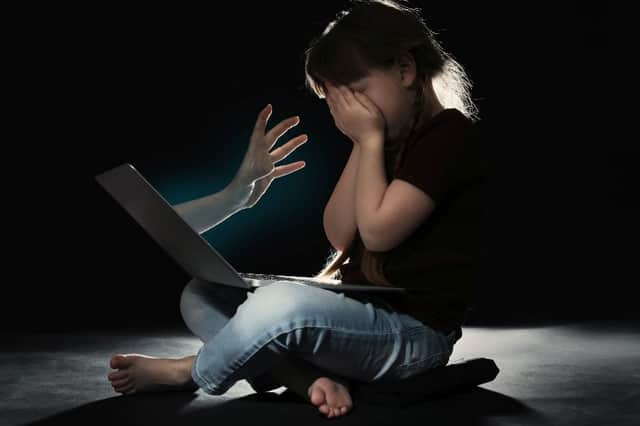Cases of online child abuse are on the rise - here’s how to protect your kids


Parents around the world are being warned by police and charities about a rise in paedophiles targeting children online during lockdown.
The volume of obscene material posted online around the world was found to have increased by more than double, reaching four million posts from March to April.
Advertisement
Hide AdAdvertisement
Hide AdIn the last month there have been roughly nine million attempts to access child sexual abuse websites, according to the Internet Watch Foundation (IWF), an anti-child abuse charity which helps to block and remove such sites by reporting them to internet providers.
Australian police have reported downloads for abusive imagery rose by 86 per cent in only three weeks following their lockdown on 21 March.
Additionally, the police in Denmark have revealed that attempts to access child abuse websites has trebled since the start of their lockdown, while the Spanish National Police have announced that reports of online child sex abuse videos increased by more than 20 per cent.
What is causing the rise?
According to experts, the closure of schools and play parks, along with the rise of online based learning has led to children spending more time online, increasing their risk of grooming.
Advertisement
Hide AdAdvertisement
Hide AdCommander Paula Hudson of the Australian Federal Police, said offenders will view the pandemic as an opportune time to target children online.
"Across the dark web we've actually identified Covid-19-themed child exploitation forums," said Commander Hudson.
"One particular one we're monitoring has grown by more than 1,000 members. They're actively discussing the Covid opportunity to find more victims.”
The IWF believes that a lack of hotline staff working during the pandemic has caused abusive sites to go unchallenged. The charity has reported that the number of abusive sites being deleted by tech companies has decreased by 89 per cent, since the lockdown began in March.
How can I keep my child safe online?
Advertisement
Hide AdAdvertisement
Hide AdThe National Society for the Prevention of Cruelty to Children (NSPCC) advises parents to keep communication open between you and your child.
A statement on its website explains parents should “talk to [their] child regularly about what they’re doing online and how to stay safe.”
“Let them know they can come to you, another trusted adult or Childline if they’re feeling worried or upset by anything they’ve seen,” the charity advises.
According to Thinkuknow, an education programme of the Child Exploitation and Online Protection Centre, parental controls are of paramount importance.
Advertisement
Hide AdAdvertisement
Hide Ad“Make use of the parental controls available on your home broadband and any internet enabled device in your home,” is the organisation’s advice.
“You can find out more about how to use parental controls by visiting your broadband provider’s website, or by viewing advice/step-by-step guides available on the internet matters site.”
Another critical measure is the setting of boundaries when it comes to internet use. This will help limit the time spent on devices, which websites can be accessed and subsequently lower the risk of exposure to online grooming.
Thinkuknow asks parents to “agree a set of rules” with their children “such as locations in the house where devices can be used, times of day your child can use devices, or which age appropriate apps or websites they can access.
Advertisement
Hide AdAdvertisement
Hide Ad“On devices you do not wish your under 5 to access, use passwords and keep these out of reach of your child.”
A helpful resource for parents looking to learn more about online safety is the NSPCC website, which guides you through setting up parental controls, and provides advice on sexting, online games and video apps.
How can I report an abusive website?
You can anonymously and confidentially report child sexual abuse images and videos to the IWF here.